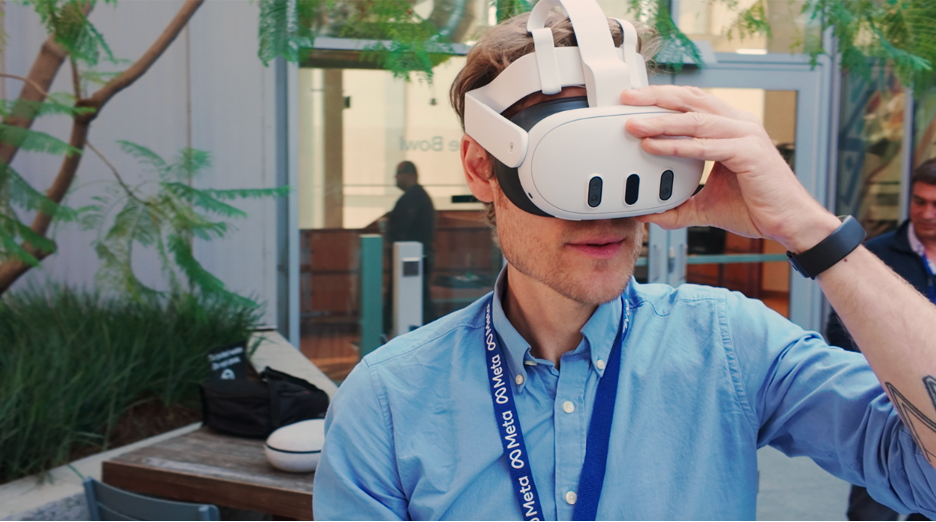Today marks a significant milestone in the realm of educational technology as Meta, the company behind the Meta Quest headsets, takes a bold step forward in transforming learning experiences. In an effort to revolutionize education through the power of metaverse technologies, Meta has unveiled the Meta for Education beta program. This ambitious initiative aims to collaborate with universities in the United States and the United Kingdom to test innovative educational applications for Quest devices and gather valuable feedback. By doing so, Meta hopes to reshape the way we approach learning in the digital age.
The Meta for Education beta program is a collaboration between Meta and over a dozen prestigious universities, including Imperial College London, the University of Glasgow, and the University of Leeds. These institutions will play a pivotal role in evaluating virtual reality (VR) and extended reality (XR) prototypes and programs within their classrooms. This hands-on approach allows educators to explore the potential of these technologies and provide invaluable insights to refine and enhance the products before their official launch.
The beta program offers university partners early access to a wide array of applications and features, bringing students closer to educational experiences that were once prohibitively expensive or logistically challenging. By integrating VR and XR into the learning environment, students can immerse themselves in subjects that would otherwise remain out of reach.
Monica Arés, Executive Director of Imperial IDEA Lab at Imperial College London, emphasizes the importance of this collaborative effort. "This moment is greater than any one institution or one company," she states. "We need to come together in collaboration across creators, developers, educational institutions, research organizations, and tech companies to build this new learning ecosystem because it’s going to benefit every individual and industry." Arés underscores the excitement of merging the digital and physical worlds, unlocking an entirely new set of tools for education.
Introducing Digital Twin Metaversities
In addition to the Meta for Education beta program, Meta has partnered with VictoryXR to create some of the first digital twin "metaversities" in Europe. These metaversities provide educators and students with an immersive environment that mirrors their physical campuses, enabling them to explore, socialize, and participate in live classes remotely.
Through this innovative approach, institutions like the University of Leeds in the UK, the University of the Basque Country in Spain, and the University of Hannover in Germany are embracing the potential of metaversities. At the University of Leeds, immersive classes focusing on Performance and Theater began in September, offering a new dimension to traditional learning methods. Meanwhile, the University of the Basque Country plans to utilize immersive technologies to host classes in Physiotherapy and Anatomy, starting in February 2025. In Hannover, Clausthal University of Technology, Ostfalia University of Applied Sciences, and the University of Göttingen are also gearing up to offer immersive courses in the upcoming academic semester.
To further support educators and enhance learning experiences, Meta is collaborating with European partners to provide new resources and training. With Meta’s backing, France Immersive Learning has released an English language guidebook for educators. This guidebook offers a comprehensive analysis of available technologies in the immersive space and practical guidance on how to integrate them into educational settings. Additionally, Meta is supporting the Immersive Learning Academy in the Netherlands, which focuses on developing high-quality educational content and incorporating immersive technology into lifelong learning curricula and educators’ training.
The Impact of VR on Education
Numerous academic studies have shown that virtual reality can significantly improve various learning outcomes. VR has been found to enhance comprehension, knowledge retention, student engagement, attention span, and motivation. A 2021 study conducted by PwC revealed that 40% of VR learners reported increased confidence in applying what they had learned, and they were 150% more engaged during classes. Similarly, a survey by the XR Association (XRA) and the International Society for Technology in Education (ISTE) indicated that 77% of educators believe these technologies stimulate curiosity and enhance engagement in the classroom.
Meta’s initiatives in education are poised to inspire new forms of learning and collaboration across Europe. By embracing the potential of VR and XR technologies, educators can create immersive and engaging environments that captivate students’ imaginations and foster deeper understanding.
Good to Know: The Role of Metaverse in Education
The concept of the metaverse, a virtual shared space where users can interact with a computer-generated environment and other users, has gained significant attention in recent years. In the context of education, the metaverse offers unique opportunities for immersive and interactive learning experiences. By leveraging this technology, educators can transcend the limitations of traditional classrooms and create dynamic, engaging environments that cater to diverse learning styles.
One of the key advantages of the metaverse in education is its ability to provide experiential learning. Students can explore historical sites, conduct scientific experiments, or practice real-world skills in a safe and controlled environment. This hands-on approach not only enhances understanding but also boosts retention and application of knowledge.
Moreover, the metaverse fosters collaboration and social interaction. Students can collaborate on projects, participate in group discussions, and engage in peer learning, regardless of their physical location. This interconnectedness promotes a sense of community and encourages the exchange of ideas, enriching the learning experience.
Looking Ahead: The Future of Metaverse in Education
As the Meta for Education beta program and digital twin metaversities continue to evolve, the potential for transformative educational experiences becomes increasingly evident. By harnessing the power of VR and XR technologies, educators can unlock new dimensions of learning, empowering students to explore, discover, and grow in ways previously unimaginable.
While the integration of the metaverse in education is still in its early stages, the possibilities are boundless. As technology continues to advance, we can expect even more innovative applications that bridge the gap between the digital and physical worlds. This convergence promises to revolutionize education, making learning more accessible, engaging, and impactful for students worldwide.
In conclusion, Meta’s initiatives in education represent a significant leap forward in the integration of technology and learning. By collaborating with universities and embracing the potential of the metaverse, Meta is paving the way for a new era of education that transcends traditional boundaries. As these initiatives unfold, the future of education looks brighter than ever, offering exciting opportunities for students and educators alike.
For more information about the Meta for Education beta program and digital twin metaversities, you can visit Meta’s official blog.
For more Information, Refer to this article.






























